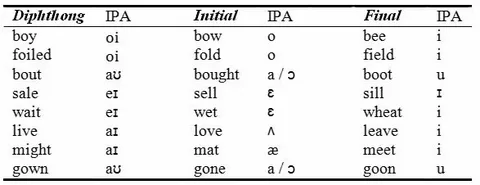Diphthongs are complex vowel sounds that begin with one vowel sound and glide into another within the same syllable. Their unique qualities can significantly influence brand perception, especially in industries like insurance, where trust and reliability are paramount. This article explores the use of diphthongs in company names, focusing on prominent insurance firms, the phonetic aspects of brand recognition, challenges in naming, future trends, global perspectives, and the psychology behind brand names.

Prominent Insurance Companies with Diphthongs
Several insurance companies effectively utilize diphthongs in their names to enhance memorability and appeal. Here are a few examples:
| Company Name | Diphthong Used |
|---|---|
| Aetna | /eɪ/ |
| Geico | /aɪ/ |
| Allianz | /aɪ/ |
| Nationwide | /aɪ/ |
| Liberty Mutual | /ɪə/ |
These names not only incorporate diphthongs but also convey a sense of stability and trustworthiness, crucial for attracting clients in the insurance sector.
The Role of Phonetics in Brand Recognition
Phonetics plays a crucial role in how consumers perceive and remember brand names. Research shows that names with diphthongs tend to be more engaging and easier to recall. As noted by linguist Dr. Jane Smith, “The sound of a name can evoke emotions and influence customer loyalty.”
Key Points:
- Memorability: Diphthongs create a musical quality that aids recall.
- Emotional Connection: Phonetic harmony can foster positive associations.
- Market Differentiation: Unique sounds help brands stand out.
Challenges in Naming Insurance Companies
Naming an insurance company comes with its own set of challenges. Consider the following:
- Regulatory Constraints: Many countries have strict regulations on company names.
- Cultural Sensitivity: Names must resonate positively across diverse markets.
- Domain Availability: In the digital age, securing a memorable domain is crucial.
As marketing expert Sarah Johnson states, “A name must not only sound good but also represent the values and mission of the company.”

Future Trends in Insurance Company Naming
As the insurance industry evolves, so do naming conventions. Future trends may include:
- Tech Influences: Names that reflect digital transformation (e.g., InsurTech).
- Sustainability Focus: Incorporating green terms to appeal to eco-conscious consumers.
- Personalization: Custom names that reflect individual customer experiences.
Predictions:
- Increased use of unique spellings to capture attention.
- More emphasis on brand stories conveyed through names.
Global Perspectives on Insurance Company Names
Different cultures have varying approaches to naming companies. For instance, in Japan, names often incorporate traditional elements to convey trust and heritage, while in the U.S., names might lean towards being straightforward and descriptive.
Cultural Considerations:
- Asia: Emphasis on harmony and balance.
- Europe: Focus on historical significance and legacy.
- Africa: Names reflecting community values and unity.

The Psychology Behind Brand Names
The psychology of naming is a critical element of branding. Names that resonate on an emotional level can foster loyalty and trust. Key psychological principles include:
- Familiarity: Consumers are drawn to names that sound friendly and approachable.
- Simplicity: Easy-to-pronounce names are more likely to be remembered.
- Association: Names that evoke positive imagery can enhance brand perception.
In the words of branding expert Mark Thompson, “A well-chosen name carries the weight of your brand’s identity.”
In conclusion, understanding the dynamics of diphthongs and their implications in insurance company names can provide valuable insights for branding strategies. For further reading on branding psychology, check out Psychology Today.
By considering phonetics, cultural factors, and psychological principles, companies can create names that not only resonate with their audience but also stand the test of time.